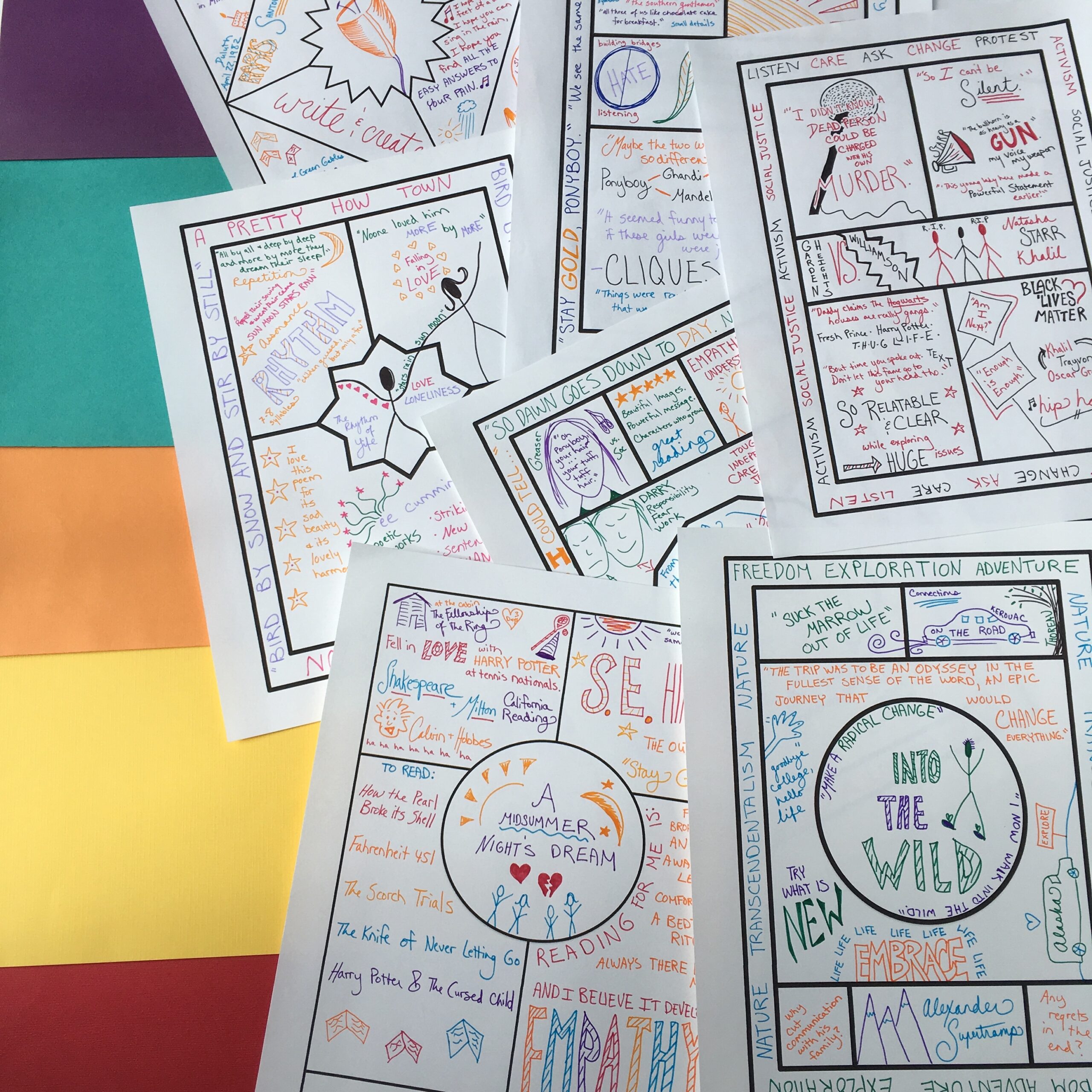
Remember when research projects involved stacks of books and notecards? Yeah, me too. But we all know research has changed. I recently finished a couple of pedagogy books for English teachers – one by Angela Stockman on designing inclusive spaces for writers, and another by Katie Novak on Universal Design for Learning in the English classroom. And beyond the many wonderful ideas I took away from them, I was also struck by the variation in the sources they referred to.
Sure, they cited texts.
But they also cited Ted Talks, telephone calls, online articles, online compendiums, and more.
Their information came from a digital rainbow of sources.
Our students naturally work the same way.
As digital natives, they’ve grown up with the whole online world at their fingertips, and their natural first line of research is probably not a book. So how do we direct them through the research process, given the incredible variety of possible sources available to them?
That’s what today’s quick episode is about.
You can listen in to episode 269 below, click here to tune in on any podcast player, or read on for the full post.
Chat GPT Ethical Use Project
I started thinking about this a lot last year when I was designing the Chat GPT Ethical Use project (find this free resource here). I was reading John Spencer’s work on project-based-learning, and he shared this intriguing article about how research can fit into that process in ways that free students.
It inspired me to create an infographic for the project guiding kids through a new kind of research journey as they looked to discover more about Chat GPT. An infographic that can really apply to almost any research project, and which reflects a lot of the research that I do in my professional life here as well.

This type of research process allows for a totally circuitous route through the online and text-based spaces as students brush against the edges of their topic at first, then find out where they want to dig deeper.
Where to Start
They might start on Youtube, then progress to a digital museum exhibit, then reach out to an expert on social media, then conduct an interview, THEN look into a book.
Or they might listen to a podcast, get a deeper understanding of what types of online articles to search for and read three good ones, discover and watch a short documentary on their topic after searching new terms based on their online article perusal, then conduct a survey of their peers that stems from what they’ve learned. A book might never be involved in this search.
Or maybe they’ll start with a book, discover the big ideas they want to search, and then fall down a Ted talk rabbit hole that leads them to a new book.
There’s really no one right way to conduct research these days, with such a wide variety of source possibilities that serve different student’s strengths and needs.
A student with a long metro commute to and from school may go heavy on podcasts and digital articles they can access on their phone.
Some students who find decoding a challenge may prefer documentaries, photo essays, and podcasts.
A student who loves reading may stick close to books and online articles.
And all three students can find a great deal of high-quality research information through the sources they prefer.
Helpful Resources
So the next time you assign a research podcast, a carousel project, an infographic, a genius hour project, or a paper, consider sharing this infographic and this process with your students. I pulled it out of the AI PBL curriculum for you on its own slide here, or you can grab the full project it was originally designed with here.

You might also like How Erica Used the AI PBL Project to give her Students Voice blog post.


























